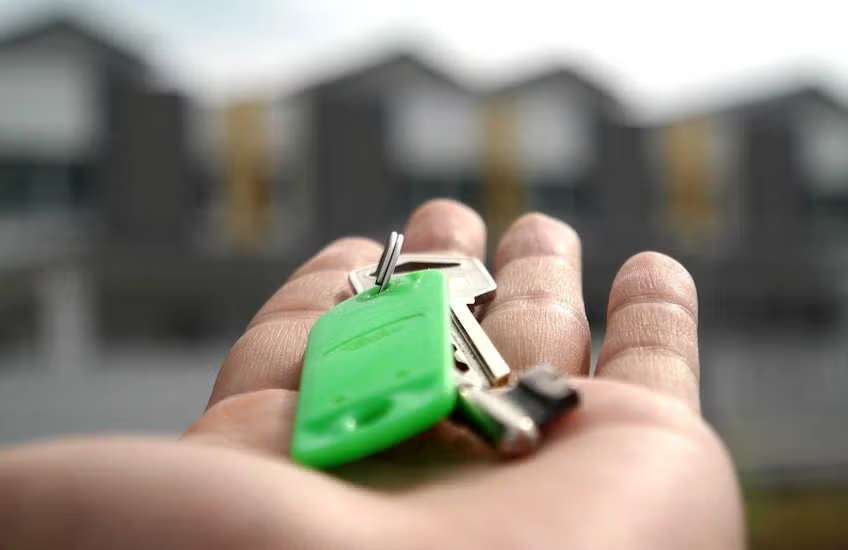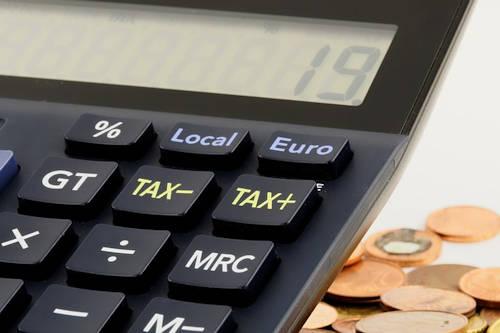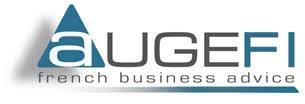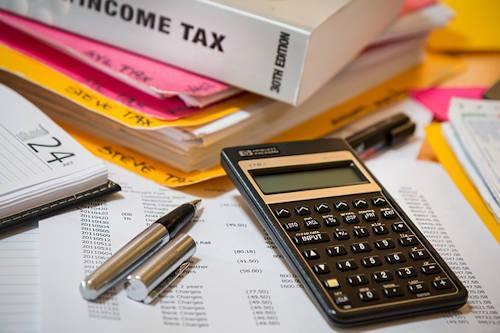 Renting property in France is not easy. The tenancy laws in France can be a minefield and in certain cases, weighted heavily in favour of the tenant. The capital gains tax laws are also not favourable for 'flipping' houses quickly, except where it is your own main residence.
Renting property in France is not easy. The tenancy laws in France can be a minefield and in certain cases, weighted heavily in favour of the tenant. The capital gains tax laws are also not favourable for 'flipping' houses quickly, except where it is your own main residence.
However, certain parts of France benefit from some of the highest rental yields in Europe, on account of a highly profitable short term rental market in the summer season and a steady long term rental market in the off season.
Furthermore, if you seek professional advice, you can avoid some of the more restricitve tenancy regulations and gain benefit from tax efficient company structures.
If you are considering renting out your holiday home in France or investing in property to rent out, then there are a number of different requirements you need to be aware of under French law.
In France, there is one particular scheme called LMNP (Location meublée non professionnelle - non-professional furnished rental), which is specifically designed to encourage private landlords and property investors to provide furnished rental accommodation in France. As with everything connected with France, the bureacracy is not simple, but the tax advantages can be significant.
Renting out property in France
We recently spoke to Sebastien Giordano and Jennifer Goube from the French Accountancy firm AUGEFI, about the LMNP scheme and how it can be used by Property Investors and Property Owners in France.
Sebastien heads up the International Business Consultancy of Augefi (French Business Advice) and he and Jennifer are familiar with helping a range of international clients, small businesses and property owners in France, find the most beneficial tax and company structure in France. Jennifer is a trained Accountant, specialising in tax and business set ups.
Firstly, Sebastien Giordano, explained the background to the LMNP scheme and the main conditions for when it can be used:
In France, legislation relating to furnished rental property dates back to 1965. For the most part, this dealt with the condition of the rental property and the terms of the tenancy and also the rules governing Real Estate agencies and Professional Letting agencies. Very little information was given about how private Landlords declared this income for taxation. Either they would create a small company to handle the rental income or they would declare the income on their personal tax return. However, in 2015, a specific law was introduced which was aimed at the private landlord sector and in particular it created a new scheme called Location meublée non professionnelle (LMNP) which allows some quite favourable taxation treatment of rental income.
 The LMNP scheme is designed specifically for individuals who are renting out property for seasonal rentals or for furnished rentals for up to one year. The property can be a single room, apartment or house. In order to take advantage of the LMNP scheme, an individual should comply with the following conditions:
The LMNP scheme is designed specifically for individuals who are renting out property for seasonal rentals or for furnished rentals for up to one year. The property can be a single room, apartment or house. In order to take advantage of the LMNP scheme, an individual should comply with the following conditions:
- The property being rented must be furnished
The rental contract must be in writing and should not exceed one year.
There is no clear definition of what constitutes a furnished property in France, although it is widely regarded to include some or all of the items listed in Decree N ° 2015-981 (July 31st 2015) which covers items such as an oven and kitchen equipment, beds, lounge furniture, etc..
- The total annual rental income should not exceed € 23,000 including tax, and
- This rental income should not exceed other household income (from professional activities, pensions, employment, etc.)
So in effect, the scheme does not apply to individuals who are using the rental income as their primary source of revenue. It is intended to cover individuals who are renting out their main residence or other property for supplementary income.
- The individual should not already be registered as a Landlord with the commercial court
Once an individual meets these conditions, they can register their rental property with the local Commercial Court and apply for non-professional landlord status
 Jennifer Goube, then outlined the main tax advantages of the LMNP scheme. She explained that
Jennifer Goube, then outlined the main tax advantages of the LMNP scheme. She explained that
under the LMNP scheme, it is possible to deduct all the expenses and costs associated with the rental. This can include any agency fees, advertising costs, maintenance costs, buying replacement furniture, etc. But perhaps the most interesting element, is that it is also permissable to depreciate the value of the property, like you would do with any other investment. These two factors combined, make the LMNP scheme very beneficial from a taxation standpoint. However, you do need to carefully plan the particular fiscal regime you use and seek some professional advice on your annual declarations.
Jennifer further explained that all furnished rental income is taxable in the category of Industrial and Commercial Benefits (B.I.C.). This French taxation category actually has 2 different regimes: a Micro scheme and a Real scheme. Each scheme has its own particular benefits and may suit individuals with different circumstances.
The Micro scheme is generally simpler to administer and you probably do not need an accountant to help you with your declarations.
The Real scheme is more complicated to administer, but it can be more beneficial.
Micro scheme
Under this scheme, the French tax authorities provide a standard 50% tax allowance on the declare rental income. So for example, if the annual rental income declared is €20,000, 50% will be deducted for costs, expenses and depreciation; and then taxation and social charges will be applied to the remaining €10,000. You do not need to provide any receipts for the expenses, the deduction is automatically applied by the administration.
Further tax rebates are permitted for special types of furnished accommodation. So the rate of the abatement goes up to 71% for furnished rentals which are registered as tourist accommodation with the local town hall) and also for registered bed and breakfast properties.
Real scheme:
This tax system makes it possible to deduct all the expenses actually incurred in running the rental property. So the types of costs covered will include property maintenance and repairs, agency commission fees, advertising costs, replacement furniture, professional fees associated with the rental, travel costs incurred by the Owner in connection with the rental property, etc. This scheme also allows for depreciation charges to be applied on the property. So in effect, if the whole house is rented out and the purchase cost of the property was €300,000, then this value can be deducted from the rental income, over a number of years. It is clear to see that if the annual costs equate to 20-25% of the annual rental income and the asset value of the property is high, then the depreciation will significantly reduce the tax liabilities.
Jennifer stated that the rules around depreciation for furnished rental properties in France are quite complicated. There are two points to note.
- the depreciation charge cannot exceed the difference between the total rents collected and the total of other expenses. This means that depreciation cannot generate a deficit. But, the non-deductible portion of depreciation can be carried forward to future years without limitation.
- in the event of a deficit, when the expenses are higher than the rents collected, this amount can only be carried forward on the profits of the following years, if the same level of rent is being charged. So it is not possible to artificially increase the deficit in one year by charging a very low rent and then carry forward this deficit to future years when a 'normal' level of rent is being charged.
 Taxation & Social Charges
Taxation & Social Charges
Sebastien, then outlined the different types of tax associated with furnished rental property.
- C.F.E: this is an annual business tax levied in France. In theory, individuals under the LMNP scheme would be subject to this business tax, but there are some important exemptions available. So for instance, if the rental involves:
- Occasional rental of part of the main residence,
- Current rental of part of the principal residence at a reasonable price,
- Furnished rental of all or part of the main residence in a tourism designated category
- Housing tax (taxe d'habitation): Normally this is paid by the tenant if the dwelling he/she occupies is their principal residence. However, the landlord may be responsible for paying this tax if under the terms of the rental contract it is possible for him/her to occupy the property during a period of the year. The taxe d'habitation system is currently undergoing extensive review in France, with a political promise made to eliminate or reduce the tax for 80% of residents.
- Tax on real estate fortune (I.F.I.): Since the activity is not professional, the value of the premises must be included in the I.F.I base.
- Capital gain: In the event of an sale of the property, the capital gain will be taxed according to the personal capital gains regime provided for in article 150 U of the C.G.I.
- Social contributions: the rental income from furnished rentals under the L.M.N.P. scheme is not subject to social contributions. However, it is subject to social levies paid at the same time as the income tax, at the rate of 17.20%.
Tax reductions
Jennifer also stated that furnished rental income is not normally subject to V.A.T. (TVA in France). The only cases where VAT is levied is in relation to:
- Accommodation in classified residences or tourist hotels
- The provision of a furnished room with services similar to those offered by the hotel establishments
Certain types of furnished rental properties maybe eligible to further tax deductions. For example, a tax reduction of 11% of the amount of the investment can be obtained with the device named "CENSI-BOUVARD". The main conditions are as follows:
- Purchase of new or newly renovated housing
- Assignment of housing to a type of structure provided by the device,
- Leasing commitment by the taxpayer for a period of 9 years.
Sebastien Giordano concluded the discussion by stating that:
The L.M.N.P. scheme is certainly something which will be of interest to many property owners in France and you certainly do not have to be French to take advantage of it. However, the L.M.N.P. scheme covers a very large number of particular rules that may or may not be relevant to your particular circumstances. We would certainly encourage you to speak to one of our Specialists in the French Business Advice team and we will provide you with as much advice and detail as possible.
 If you are interested in investing in property in France or if you already rent out your holiday home and are now considering offering your property for long term rentals, then I would strongly encourage you to speak to Sebastien Giordano or Jennifer Goube at French Business Advice. I have referred many property owners to Jennifer over the years and she has also provided business advice to us. Jennifer speaks French, Spanish and English and Sebastien speaks French, English and some Italian.
If you are interested in investing in property in France or if you already rent out your holiday home and are now considering offering your property for long term rentals, then I would strongly encourage you to speak to Sebastien Giordano or Jennifer Goube at French Business Advice. I have referred many property owners to Jennifer over the years and she has also provided business advice to us. Jennifer speaks French, Spanish and English and Sebastien speaks French, English and some Italian.
You can contact Jennifer Goube via email at French Business Advice or by telephone at +33 4 67 18 62 01













